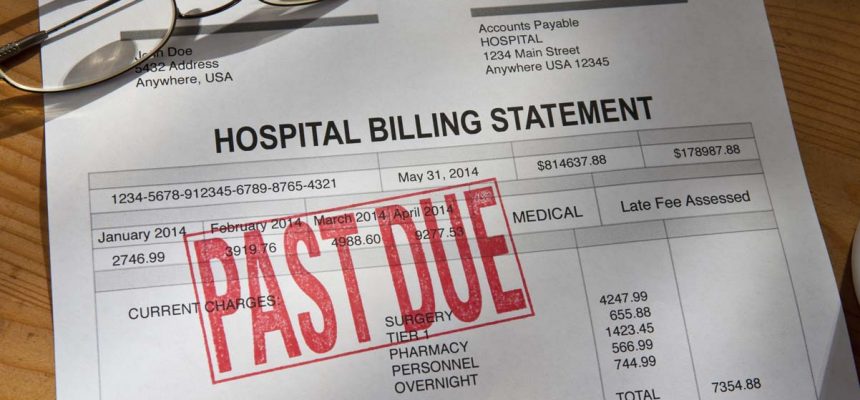More Hospitals Are Suing Patients For Unpaid Bills
By Consumers For Quality Care, on November 19, 2019

Some hospitals are employing a new tactic to get unpaid medical bills from patients. Instead of simply sending collection notices or making phone calls, the hospitals have begun suing individual patients in court over the bills. As the New York Times reports:
From Delaware to Oregon, hospitals across the country are increasingly suing patients for unpaid bills, a step many institutions were long unwilling to take.
In some places, major hospitals now file hundreds or even thousands of lawsuits annually. Those cases strain court systems and often end in wage garnishments for patients.
Hospitals rarely used to sue patients over a bill, but the practice has become increasingly common. According to the New York Times, one hospital system in Virginia and Tennessee has brought at least 44,000 lawsuits against patients since 2009. In Milwaukee, one nonprofit children’s hospital has sued 1,101 patients since the beginning of 2018 – more cases than it had brought in the entire previous decade.
In many cases, the lawsuits are brought against lower-and-middle-class families who have insurance, but also a high deductible which results in a high bill that they are unable to pay. Ultimately, the patients’ inability to pay the bills can lead to wage garnishments in addition to lawsuits. One woman who had her wages garnished tried to work extra shifts to make up the lost income, but still fell short.
Ms. Edwards was making $300 monthly payments to the hospital. But after some unanticipated expenses — a $450 exterminator bill for bed bugs was a big setback — she began sending smaller amounts, she said, acknowledging that she had not first cleared the lower payments with Children’s.
The hospital took her to court last fall and recently began garnishing a quarter of her wages: $420 from her biweekly paycheck. Ms. Edwards worked 14-hour shifts to make up for the lost income, but still fell behind on her mortgage.
Consumer advocates say hospitals often make faulty assumptions about a patient’s ability to pay. If a patient has insurance, hospitals generally assume they can pay their bill, but this is increasingly not the case due to high deductibles.
“There is this new group of people who, on paper, look like they should be able to afford their bills,” said Craig Antico, founder of the nonprofit RIP Medical Debt, which buys and forgives outstanding bills. “They’re middle-class, they have relatively good credit ratings, they’re not transient. But they have these big deductibles, and they can’t afford their bills.”
The New York Times article points out many reforms that are being pursued by either lawmakers, consumer advocates or the hospitals themselves, including a cap on debt interest rates and making courts more accommodating to patients.



